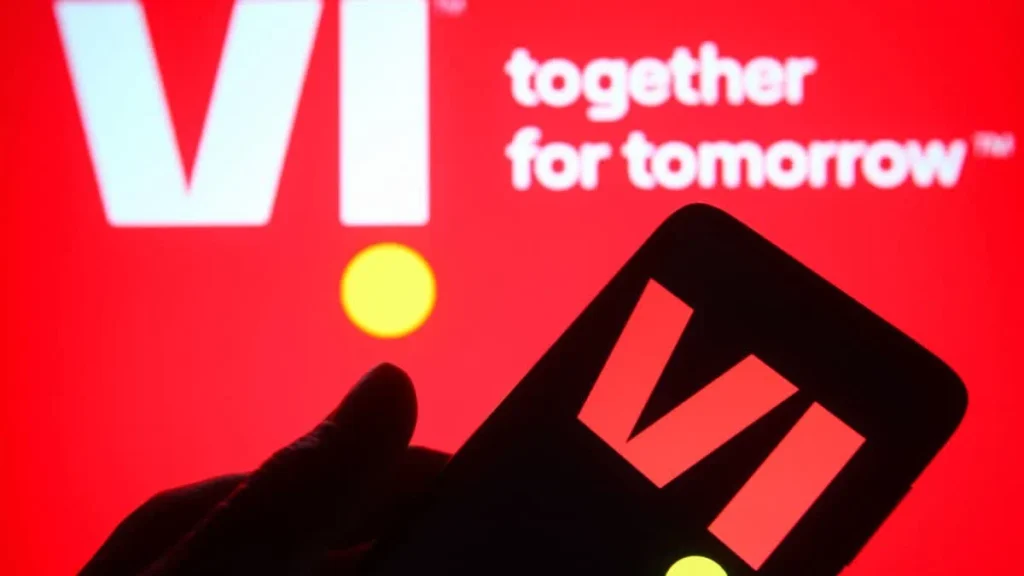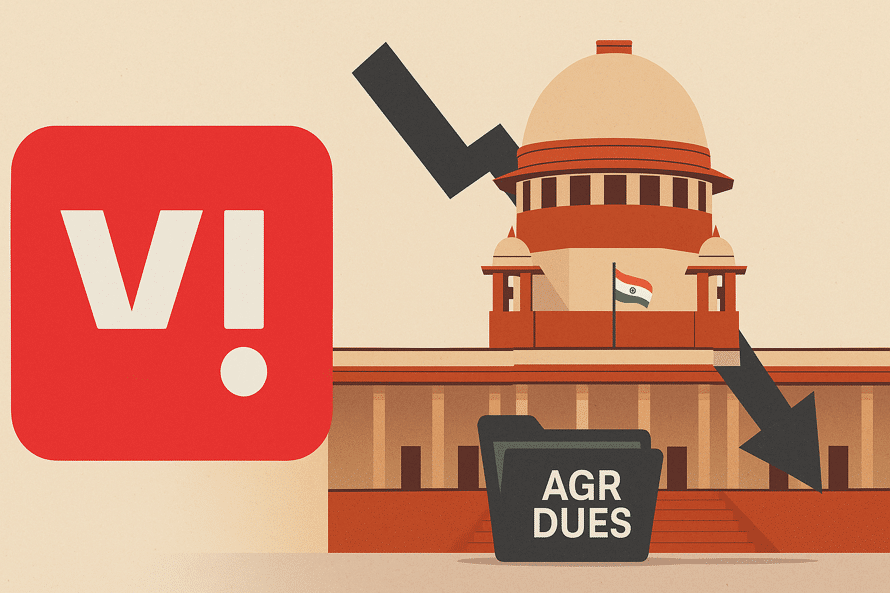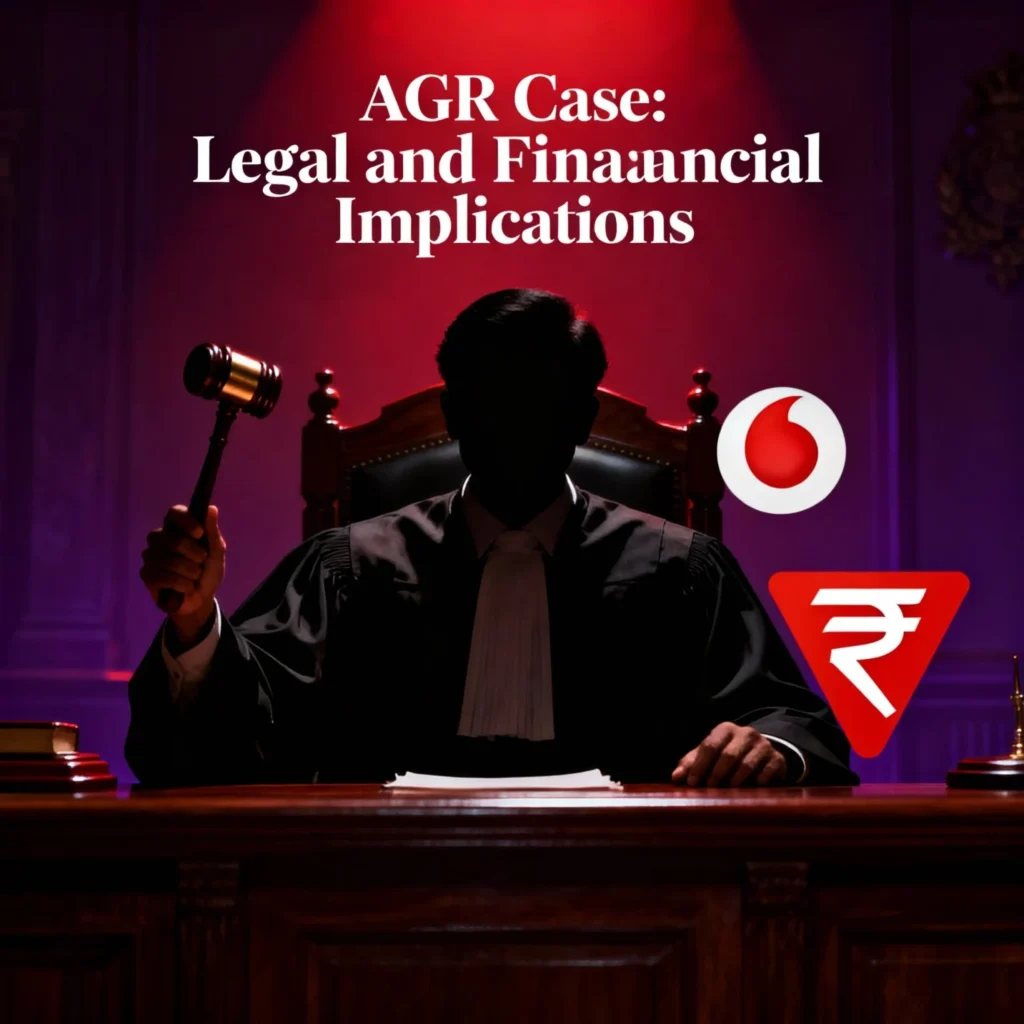In this blog, we will understand everything about the Vodafone Vi AGR case, including what AGR means, how it started, what happened in the Supreme Court, and what it means for Vodafone, Vi, and the entire telecom industry in India. The keywords Vodafone, Vi, AGR, case are used throughout this article to make the content clear and SEO-focused.
🔹 What Is AGR in the Vodafone Vi Case?
Before understanding the Vodafone Vi AGR case, it’s important to know what AGR actually means.
AGR (Adjusted Gross Revenue) is a term used in the telecom industry to calculate how much revenue a company earns and how much of it must be shared with the government as a license fee and spectrum usage charge.
The Department of Telecommunications (DoT) defines AGR as the total revenue earned by telecom companies, including both telecom and non-telecom sources like rent, interest, or profit from investments.
However, Vodafone and other telecom companies disagreed. They believed AGR should include only income from core telecom services, not other business activities.
This disagreement became the heart of the AGR case, which has affected the financial health of companies like Vi (Vodafone Idea) for years.
🔹 How the Vodafone Vi AGR Case Started
The AGR case began over a decade ago when telecom operators and the DoT couldn’t agree on what should be included in AGR calculations.
- The DoT wanted to include all types of income — core and non-core.
- The telecom companies like Vodafone and Bharti Airtel argued that only telecom service revenue should count.
This dispute led to multiple court cases and appeals.
In 2019, the Supreme Court of India finally ruled in favor of the DoT, declaring that AGR includes all revenues, not just telecom-related ones.
That decision turned into a massive financial challenge for Vodafone and Vi, as they suddenly owed thousands of crores in dues.
🔹 Vodafone Vi AGR Case Supreme Court Ruling
In October 2019, the Supreme Court gave its final judgment on the AGR case, siding with the government.
The verdict stated that Vodafone, Vi, Airtel, and other telecom companies must pay AGR dues along with penalties and interest.
This ruling hit Vodafone and Vi the hardest because:
- Their total AGR dues were around ₹83,400 crore.
- This included license fees, spectrum usage charges, penalties, and interest on penalties.
- Vi had already been struggling financially, and this verdict worsened its debt situation.
The Supreme Court’s decision was clear: telecom companies must pay their AGR dues in full without any recalculation or waiver.
🔹 Why AGR Became a Big Problem for Vodafone and Vi
The Vodafone Vi AGR case became a huge issue because of how the dues were calculated.
The government added penalties and compound interest over many years, making the total amount skyrocket.
The main problems were:
- Huge financial burden:
Vodafone and Vi together owed more than ₹1 lakh crore in total. - No relief from the court:
The Supreme Court refused to reduce or recheck the dues. - Limited cash flow:
Vi had low revenue growth and couldn’t raise enough capital. - Falling market share:
As Vi struggled, many users switched to other telecom operators. - Investor fear:
Investors were worried that Vi might not survive without help.
These challenges made the AGR case one of the most crucial issues for the Indian telecom sector.
🔹 Vodafone Vi AGR Case and Government Involvement
Even though the Supreme Court did not offer relief, the Government of India stepped in to prevent a possible collapse of Vi.
Since the telecom sector is vital for the economy, the government decided to support the company — not by waiving dues but by providing some flexibility.
Government measures included:
- Allowing a moratorium on AGR payments for a few years.
- Offering the option to convert interest dues into equity.
- Taking a stake in Vi, making the government a shareholder.
As a result, the government became one of the major shareholders in Vi, showing its intention to keep the company alive and competitive.
However, this didn’t mean that Vodafone or Vi were free from paying dues. The AGR case was still legally binding, and the dues remained.

🔹 Vodafone Vi AGR Case Timeline (Simplified)
Here’s a simple timeline showing how the Vodafone Vi AGR case evolved:
- 2003: The AGR dispute between telecom companies and DoT begins.
- 2005–2018: Several appeals and court hearings take place.
- October 2019: Supreme Court rules in favor of DoT; AGR must include all revenues.
- 2020: Telecom companies request relief; the court allows payment in installments over 10 years.
- 2021–2023: Vi continues to face financial pressure; government takes a stake in Vi.
- 2024–2025: Vi files petitions for waiver of penalties and interest; Supreme Court dismisses them.
This timeline shows that the AGR case has been ongoing for nearly two decades, making it one of the longest and most impactful legal battles in India’s telecom history.
🔹 Impact of the Vodafone Vi AGR Case on the Telecom Sector
The Vodafone Vi AGR case didn’t just affect one company — it impacted the entire Indian telecom industry.
Major impacts include:
- Financial strain:
Telecom companies had to divert funds from innovation and infrastructure to pay dues. - Reduced competition:
With Vi struggling, the market became more dependent on two major players — Jio and Airtel. - Higher tariffs:
To recover losses, telecom companies gradually increased plan prices. - Slower 5G rollout:
Heavy dues limited Vi’s ability to invest in new technologies. - Investor hesitation:
Uncertainty about Vi’s future discouraged new investments in the telecom sector.
Because of these effects, the AGR case is often described as a turning point in India’s telecom story.
🔹 Current Status of the Vodafone Vi AGR Case
As of now, the Vodafone Vi AGR case continues to be a challenge.
Vi has requested relief multiple times, especially for penalties and interest, but the Supreme Court has not allowed any re-evaluation.
The current position:
- Vi must still pay the remaining AGR dues.
- The Supreme Court has clearly stated there will be no recalculation.
- The DoT continues to demand full payment.
- The Government has refused to convert more dues into equity.
However, the government has assured that it wants a healthy telecom market and won’t let the sector collapse. That is why it has continued discussions with Vi for possible solutions.
🔹 Vodafone Vi’s Efforts to Recover from the AGR Case
Despite the heavy pressure of the AGR case, Vodafone and Vi are trying to recover.
The company has been working on different strategies to improve its financial health and keep operations stable.
Vi’s recovery plans include:
- Raising new funds:
Vi is working with investors to secure capital and reduce debt. - Expanding 4G and launching 5G:
The company aims to improve its network coverage to attract users back. - Cost reduction:
Vi is cutting non-essential expenses to maintain profitability. - Tariff adjustments:
The company may increase mobile plan prices slightly to increase revenue. - Government dialogue:
Vi continues to discuss possible relief measures with the government.
These efforts show that Vi is still committed to survival despite the financial challenges caused by the AGR case.
🔹 Why the Vodafone Vi AGR Case Matters to Everyone
The Vodafone Vi AGR case might seem like a corporate or legal issue, but its effects reach every mobile user in India.
Here’s why it matters to all of us:
- Telecom competition affects prices:
If Vi fails, there will be less competition, and data prices might increase. - Network quality depends on stability:
Strong companies ensure better coverage and faster internet for consumers. - Employment and economy:
Vi provides jobs to thousands of people directly and indirectly. - Digital India vision:
A balanced telecom sector is vital for India’s digital growth.
So, this case is not just about one company — it’s about maintaining a fair and competitive telecom market for everyone.

🔹 Key Takeaways from the Vodafone Vi AGR Case
To understand the Vodafone Vi AGR case clearly, here are the main takeaways:
- The AGR definition dispute led to massive financial dues for telecom companies.
- The Supreme Court’s 2019 ruling favored the government’s interpretation.
- Vodafone and Vi were hit hardest, owing over ₹83,000 crore.
- The government helped by converting some dues into equity, not by canceling them.
- Vi is still struggling but continues to operate with government and investor support.
- The AGR case has reshaped India’s telecom industry forever.
🔹 Future of Vodafone and Vi After the AGR Case
The future of Vodafone and Vi depends on how well they handle this ongoing AGR case.
If Vi manages to raise funds and grow its subscriber base again, it can recover slowly.
Possible future scenarios:
- Positive outcome:
If Vi secures funding, expands 5G, and stabilizes, it could regain market trust. - Neutral outcome:
Vi continues operating but remains under financial stress. - Negative outcome:
If relief or funding doesn’t come, Vi could face more serious operational challenges.
However, Vi’s management and the government have both indicated that they will not let the company shut down, which gives a positive signal to the industry.
🔹 Lessons Learned from the Vodafone Vi AGR Case
The Vodafone Vi AGR case teaches several lessons about how regulation, clarity, and fairness matter in business.
Lessons include:
- Clear policies prevent confusion:
A better definition of AGR earlier could have avoided decades of legal battles. - Balance between business and regulation:
Telecom companies and regulators must cooperate for long-term industry health. - Importance of competition:
A diverse telecom market ensures fair prices and innovation. - Financial planning:
Companies must always prepare for regulatory changes. - Transparency and trust:
Both government and corporations must communicate clearly to avoid major disputes.
These lessons can help improve the future structure of India’s telecom industry.
🔹 Conclusion
The Vodafone Vi AGR case is one of the most significant legal and financial events in India’s telecom history.
It started as a simple disagreement over revenue calculation but grew into a battle that shaped the future of Vodafone, Vi, and the telecom market itself.
Even though Vi continues to face challenges, the company is still fighting to survive and grow. With government support, better management, and new investments, there is still hope for recovery.
The AGR case reminds everyone — businesses must stay compliant, transparent, and adaptable in a changing environment. The survival of Vodafone and Vi will continue to be closely watched, as their outcome affects not just investors but every mobile user in India.
















Leave a Comment